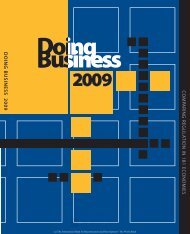Download File - JOHN J. HADDAD, Ph.D.
Download File - JOHN J. HADDAD, Ph.D.
Download File - JOHN J. HADDAD, Ph.D.
Create successful ePaper yourself
Turn your PDF publications into a flip-book with our unique Google optimized e-Paper software.
7<br />
Multimodality Immunization Approaches<br />
to Improve on DNA Vaccines for Cancer<br />
INTRODUCTION<br />
Zhiyong Qiu and Kent A. Smith<br />
Division of Translational Medicine, MannKind Corporation,<br />
Valencia, California, U.S.A.<br />
The discovery, more than a decade ago, that naked plasmid vectors expressing<br />
exogenous genes can be utilized to elicit immune responses promoted an<br />
unprecedented excitement and pursue of this strategy in preclinical and clinical<br />
development of innovative biotherapeutics in infectious diseases (1–3), cancer<br />
(4–7), and autoimmunity (8–10). An initial momentum resulting from promising<br />
preclinical results has been somewhat diminished subsequently due to modest<br />
efficacy data obtained in various clinical trials, particularly in prophylactic settings<br />
(11,12). Nevertheless, features such as the apparent simplicity of mechanism of<br />
action, intrinsic adjuvant properties, favorable safety profile, and ease in manufacturing,<br />
all warrant a careful analysis of the limiting factors associated with<br />
DNA vaccination with the purpose of designing novel strategies that leverage<br />
these beneficial features.<br />
One of the hallmarks of plasmid immunization is that the antigenpresenting<br />
cells (APCs) have relatively prolonged exposure to low levels of antigen.<br />
While this may lead to the generation of high-quality responses, it has been<br />
difficult to obtain high-magnitude responses using such vaccines, even with<br />
repeated booster doses, a phenomenon likely due to the relatively low levels of<br />
epitope loading onto major histocompatibility complex (MHC) achieved with<br />
131

















